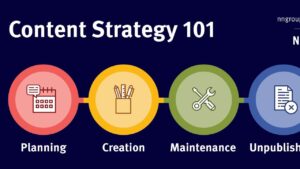Performance marketing is a digital marketing strategy centered around measurable and trackable outcomes. Unlike traditional marketing, which may focus on brand awareness or broader objectives, performance marketing aims to achieve specific, quantifiable results.
This strategy largely relies on data and analytics to evaluate the efficacy of campaigns and maximize return on investment (ROI).
Key components of performance marketing include:
Precise Targeting:
Performance marketers use data and segmentation to identify their ideal audience. Consequently, they ensure that marketing efforts reach individuals most likely to convert.
Measurable Metrics:
Clear and quantifiable KPIs are established at the outset of a campaign, such as clicks, conversions, leads, or sales.
Pay-Per-Click (PPC) Advertising:
In PPC campaigns, advertisers pay only when users take specific actions, like clicking on an ad or making a purchase.
Data-Driven Decision-Making:
Data and analytics tools collect, analyze, and interpret user behavior, campaign performance, and other relevant metrics.
Real-Time Optimization:
Performance marketers continuously refine their strategies based on real-time data, making adjustments to maximize campaign effectiveness.
Budget Control:
Marketers control budget allocation, allowing them to scale successful campaigns and halt or modify underperforming ones.
Attribution Modeling:
Performance marketing evaluates how different touchpoints contribute to conversions, offering insights into the customer journey.
Performance marketing is adaptable and results-oriented, making it a preferred choice for businesses looking to achieve measurable outcomes in the digital landscape.
It encompasses various tactics, including search engine marketing, advertising via social media, email marketing, and affiliate marketing, all with the common goal of driving quantifiable results and optimizing marketing efforts based on data-driven insights.
Performance Marketing SEO:

Performance Marketing SEO, often referred to simply as “Performance SEO,” is a multifaceted digital marketing strategy.
Unlike traditional SEO, which primarily focuses on improving organic search rankings and visibility, Performance SEO takes a more holistic and data-driven approach.
The focus is increasing a website’s exposure when seeing search engine results pages (SERPs). The ultimate goal is to generate specific, targeted traffic. The objective is to drive specific, measurable actions like clicks, conversions, or sales.
The Evolution of SEO
To understand Performance Marketing SEO fully, it’s crucial to recognize how SEO has evolved over the years. Traditional SEO initially revolved around keyword optimization, meta tags, and link building to boost organic rankings.
While these elements remain relevant, search engines, particularly Google, have become more sophisticated.
Google’s algorithm updates, such as Panda, Penguin, and BERT, have transformed the SEO landscape. These updates prioritize content quality, user intent, and mobile-friendliness, pushing SEO professionals to adapt their strategies accordingly.
Performance Marketing SEO represents the latest evolution in this ongoing transformation. It involves aligning SEO efforts with broader marketing objectives and bridging the gap between search optimization and tangible business outcomes.
Key Components of Performance Marketing SEO
Performance Marketing SEO comprises several essential components, each contributing to its success. Let’s explore these key elements in detail:
Targeted Keyword Optimization
Keyword optimization remains a foundational element of SEO. However, in Performance Marketing SEO, ranking for any keyword is no longer the focus; instead, ranking for keywords most likely to result in conversions is.
This requires in-depth keyword research and analysis to identify high-value keywords with strong user intent.
Performance SEO extends beyond traditional SEO by targeting long-tail keywords—specific phrases indicating a user’s precise search intent.
These long-tail keywords are often associated with higher conversion rates because they reflect users closer to purchasing.
Content Strategy

The king of internet marketing is content.
SEO for performance marketing is no exception. Performance SEO’s content strategy goes beyond merely creating content for its own sake.
Instead, it entails producing excellent, pertinent, and interesting content with the requirements and interests of the target audience in mind.
Both search engines and human readers should be catered for in content. Google’s algorithms have become adept at understanding context and user intent, so content that genuinely addresses user queries and provides value is favored.
Technical SEO
Technical SEO is the foundation upon which a website’s performance is built.
In Performance Marketing SEO, technical optimization is essential to ensure a website is both user-friendly and search engine-friendly.
Moreover, a well-optimized website can significantly enhance its online visibility and user experience.
Technical SEO involves various aspects, including:
Site Speed: Faster loading times improve user experience and positively impact rankings.
Mobile-Friendliness: Ensure your website is mobile-responsive as interest in mobile internet usage grows.
Crawlability: Making sure search engine bots can effectively crawl and index your website’s pages.
Schema Markup: Utilizing structured data to enhance the display of your content in search results.
User Experience (UX): Improving navigation, readability, and overall satisfaction for website visitors.
Link Building
Link building has been a fundamental aspect of SEO for years and remains relevant in Performance Marketing SEO. However, the approach to link building has evolved.
Performance SEO emphasizes acquiring high-quality, authoritative, and relevant backlinks that have the potential to drive traffic and conversions.
The focus is building a natural link profile that reflects a website’s credibility and authority within its industry. Quality always trumps quantity in backlinks, and spammy link-building practices are discouraged.
Analytics and Data
Data-driven decision-making lies at the heart of Performance Marketing SEO. Marketers rely on various analytics tools and platforms to measure and optimize performance effectively, including Google Analytics, Google Search Console, and specialized SEO software.
Through these tools, marketers can monitor website performance, track key performance indicators (KPIs), and gain insights into user behavior.
Data-driven insights enable marketers to adjust their strategies in real-time, ensuring they remain aligned with business goals and responsive to market changes.
Why Performance Marketing SEO Matters

Measurable Results
One of the standout features of Performance Marketing SEO is its ability to deliver measurable results. Traditional SEO often needs help to link optimization efforts and concrete outcomes directly.
In contrast, Performance SEO establishes a clear connection between SEO actions and key performance indicators (KPIs).
By setting up measurable goals and tracking progress through analytics, businesses can gauge the effectiveness of their SEO campaigns.
This helps prove the return on investment (ROI) and enables data-driven refinements to optimize ongoing efforts.
Alignment with Business Goals
Performance Marketing SEO operates with a fundamental principle: align SEO strategies with broader business objectives.
This alignment ensures that SEO efforts are not isolated but contribute directly to the business’s success.
For example, suppose a business’s primary goal is to increase e-commerce sales. In that case, Performance SEO will optimize product pages, improve conversion rates, and target keywords that drive purchasing decisions.
Businesses may improve the efficiency of their digital marketing operations by integrating SEO with their business goals.
Adaptability
In the dynamic world of digital marketing, adaptability is key to staying relevant and competitive. Google’s algorithm updates and shifts in consumer behavior can significantly impact search rankings and website traffic.
Performance Marketing SEO excels in this regard because it encourages ongoing monitoring and rapid adjustments based on data insights.
Marketers can respond quickly to algorithm changes, emerging trends, and shifts in user behavior. This adaptability ensures that SEO strategies remain effective and resilient despite evolving challenges.
Competitive Advantage
Businesses that embrace Performance Marketing SEO gain a competitive edge in their respective industries. While many organizations continue to adhere to traditional SEO practices, those who adopt a results-oriented approach are more likely to outperform their competitors.
Performance SEO’s ability to drive specific, measurable actions gives businesses a distinct advantage. Effectively focusing on high-converting keywords and engaging potential clients when they are most prepared to purchase allows companies to increase their market share.
Enhanced User Experience
A core tenet of Performance Marketing SEO is enhancing user experience. To achieve this, technical SEO optimizations, such as faster load times and mobile-friendliness, are crucial. Additionally, crafting user-centric content plays a pivotal role in creating a positive online experience for visitors.
Users are more likely to engage with the material and perform the intended actions when they find a website user-friendly, educational, and visually appealing.
Higher customer happiness, better brand perception, and greater customer loyalty can result.
Implementing Performance Marketing SEO Strategies
Now that we’ve explored the components and benefits of Performance Marketing SEO, let’s discuss how to implement these strategies effectively:
Conduct Thorough Keyword Research
To begin, undertake extensive keyword research to find high-value terms that support your company’s goals. Take into account user intent and both short-tail and long-tail keywords.
Create Quality Content
Make a content strategy to create high-quality,
producing high-quality, pertinent, and interesting material. Ensure your content satisfies user needs, adds value, and matches your chosen keywords.
Optimize for Technical SEO
Invest in technical SEO to improve website performance and user experience: address site speed, mobile-friendliness, crawlability, and schema markup issues.
Build High-Quality Backlinks
Adopt a natural and ethical approach to link building. Seek authoritative and relevant backlinks that enhance your website’s credibility and authority.
Monitor and Analyze Data
Regularly monitor website performance and user behavior through analytics tools. Track KPIs and adjust your strategies based on data insights.
Stay Informed
Keep abreast with market developments, algorithm changes, and new SEO techniques. Being informed is essential to succeed in SEO because it is a field that is constantly changing.
Test and Iterate
Test several ideas and approaches over time to determine the most effective for your company. Additionally, refinement based on data is essential in the iterative nature of performance SEO
Case Studies and Success Stories
We’ll examine a few case studies and success stories from companies that have used this strategy to give practical insights into the effectiveness of performance marketing SEO.
Case Study 1: E-commerce Success
Explore how an e-commerce business significantly increased online sales by implementing Performance Marketing SEO strategies. Learn about their keyword optimization, content tactics, and data-driven decision-making.
Case Study 2: Local Business Visibility
Discover how a local brick-and-mortar business improved online visibility and attracted more foot traffic through Performance SEO. Furthermore, explore their use of local SEO techniques and content marketing..
Case Study 3: Content-Driven Growth
Explore how a content-focused website successfully harnessed Performance Marketing SEO to expand its audience and boost revenue. First, delve into their content strategy; next, examine their link-building efforts; and finally, analyze their data analytics
Future Trends in Performance Marketing SEO
Foreseeing forthcoming trends in Performance Marketing SEO is crucial as we look to the future. To stay ahead of the curve, look into the trends shaping this dynamic field.
Voice Search Optimization
As smart speakers and voice assistants have become increasingly prevalent, voice search has also grown in popularity. Therefore, it’s essential to understand how performance SEO tactics will evolve to meet the demands of voice search requests
Artificial Intelligence and Machine Learning
The SEO environment is changing as a result of AI and machine learning. Discover how these technologies will be essential for content optimization, user behavior prediction, and SEO task automation.
User Experience and Core Web Vitals
Google’s focus on user experience, as evidenced by Core Web Vitals, will continue to shape SEO strategies. Additionally, let’s explore how Performance SEO will prioritize page speed, interactivity, and visual stability.
Mobile-First Indexing
Mobile internet usage is on the rise. Therefore, it’s crucial to understand how mobile-first indexing will impact Performance Marketing SEO. Additionally, it’s important to grasp why mobile-friendly websites are essential for success.
Conclusion
Performance Marketing SEO represents the evolution of traditional SEO into a results-oriented, business-centric approach.
Moreover, businesses can thrive in the competitive digital landscape by aligning SEO efforts with measurable goals, optimizing for user experience, and staying adaptable.
This comprehensive guide has delved into the intricacies of Performance Marketing SEO, from its fundamental components to its significant benefits.
Whether you’re a marketer looking to enhance your skills or a business owner seeking to elevate your online presence, embracing Performance SEO is a strategic move that can drive tangible results and contribute to long-term success in the digital world.



